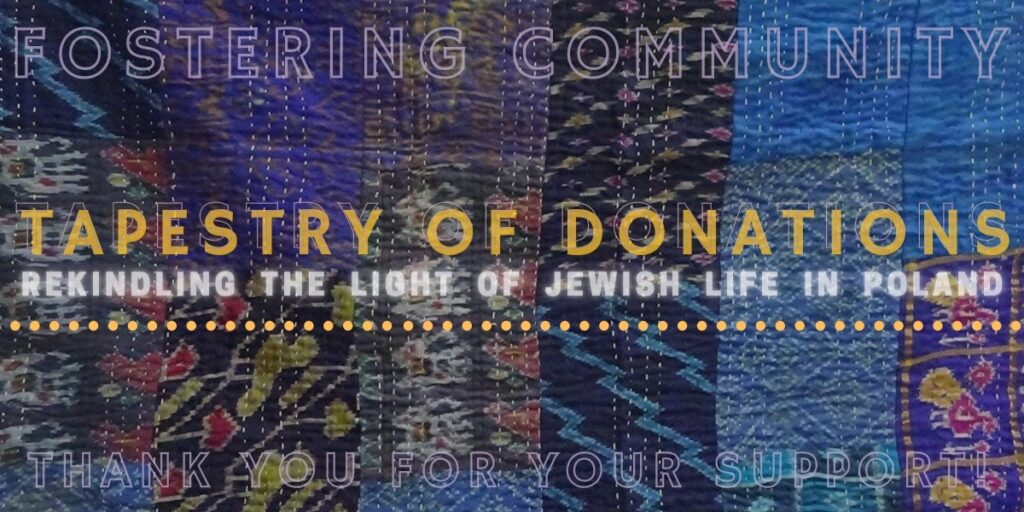 This past summer, on July 2, the people of Kielce gathered for the premier of the documentary Bogdan’s Journey. The movie describes a series of public conversations and ceremonies led by Dr. Bialek that focused attention on the events of the July 4, 1946 pogrom. Until the arrival of Dr. Bogdan Bialek the events were “forgotten” by some. Through Bialek’s reconciliation work over a 20 year period many found the courage and willingness to listen. Responses and reviews to the movie in Poland, Israel and North America have been very strong.
This past summer, on July 2, the people of Kielce gathered for the premier of the documentary Bogdan’s Journey. The movie describes a series of public conversations and ceremonies led by Dr. Bialek that focused attention on the events of the July 4, 1946 pogrom. Until the arrival of Dr. Bogdan Bialek the events were “forgotten” by some. Through Bialek’s reconciliation work over a 20 year period many found the courage and willingness to listen. Responses and reviews to the movie in Poland, Israel and North America have been very strong.
My colleague Dr. Richard Hecht and I led a delegation through the auspices of The Friends of Jewish Renewal in Poland trip to visited Kielce on July 3 this summer. Our visit included an opportunity to discuss with Dr. Bialek his work in fostering Christian-Jewish conversation and reconciliation.
Visit to Kielce: Commemoration and Museum — New Controversy
July 3, 2016 residents of the town gathered together to remember the terrible events that took place 70 years ago. The next day, the city hosted an official delegation led by Poland’s President Andrzej Duda. President Duda declared that there is no room for racism and bigotry in today’s Poland.
The contrast between the gatherings is best illustrated by a impromptu talk given by a young resident of a small town Jedwabne were residents murdered their Jewish neighbors at the start of the German occupation of their town in July 1941. The events of Jedwabne were examined by Princeton professor Dr. Jan Gross’ book, Neighbors. (Gross wrote a study of what happened in Kielce called Fear.) The Jedwabne resident praised his fellow Kielce Poles and especially the mayor of the town for their forthright grappling with dark past. The mayor of Jedwabne, Michael Chajewski refused to attend the memorial in his town and called the Institute for Historical Memory which essentially affirmed Gross’ findings opinion. Chajewski called for the exhumation of the bodies of 340 victims to confirm if it was German or Poles who killed the Jews of his town.

Rivka Foremniak from Warsaw and Kasia Mazurkewicz from Gdansk
History Recalled

Plaque affixed to the Planty 7/9 museum
Members of Poland’s Jewish community as well as visitors from abroad walked through the city on a rainy day to commemorate the events on a rainy July 3, this summer. There were the speeches from various city officials and from the Ambassador of Israel, Anna Azari and from the leader of the Jewish Cultural Association, Artur Hoffman. Throughout the several stages of the walk Dr. Bialek explained the significance of various places in the history of Kielce. The first station of our walk was in area with the stainless steal Menorah, designed by Marek Cecula. The ambiguity of the rising-setting Menorah evokes a message of challenge. The city of Kielce commissioned the Menorah which is now on one of Kielce busiest streets but was once in the heart of the Jewish Ghetto.


Leave a Reply